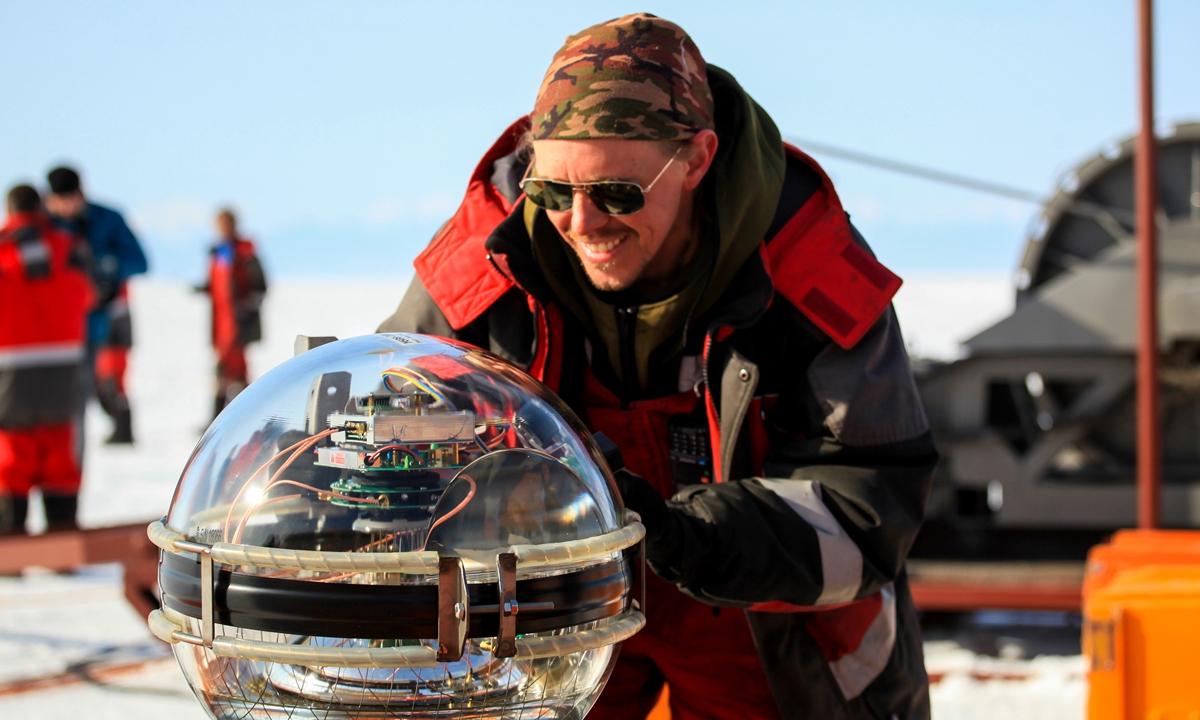Russian scientists on Saturday launched one of the world's biggest underwater space telescopes to peer deep into the universe from the pristine waters of Lake Baikal.

The Baikal Gigaton Volume Detector (Baikal-GVD) deep underwater neutrino telescope, an international project in the field of astroparticle physics and neutrino astronomy, is seen during the launch ceremony on Lake Baikal, in Irkutsk Region, Russia on March 13, 2021. Photo: VCG
The deep underwater telescope, which has been under construction since 2015, is designed to observe neutrinos, the smallest particles currently known. Dubbed Baikal-GVD, the telescope was submerged to a depth of 750-1,300 meters, around four kilometers from the lake's shore. Neutrinos are very hard to detect and water is an effective medium for doing so. The floating observatory consists of strings with spherical glass and stainless steel modules attached to them.
On Saturday, scientists observed the modules being carefully lowered into the freezing waters through a rectangular hole in the ice.
"A neutrino telescope measuring half a cubic kilometer is situated right under our feet," Dmitry Naumov of the Joint Institute for Nuclear Research told AFP while standing on the lake's frozen surface. In several years the telescope will be expanded to measure one cubic kilometer, Naumov said. The Baikal telescope will rival Ice Cube, a giant neutrino observatory buried under the Antarctic ice at a US research station at the South Pole, he added.
Russian scientists say the telescope is the largest neutrino detector in the Northern Hemisphere and Lake Baikal - the largest freshwater lake in the world - is ideal for housing the floating observatory.




